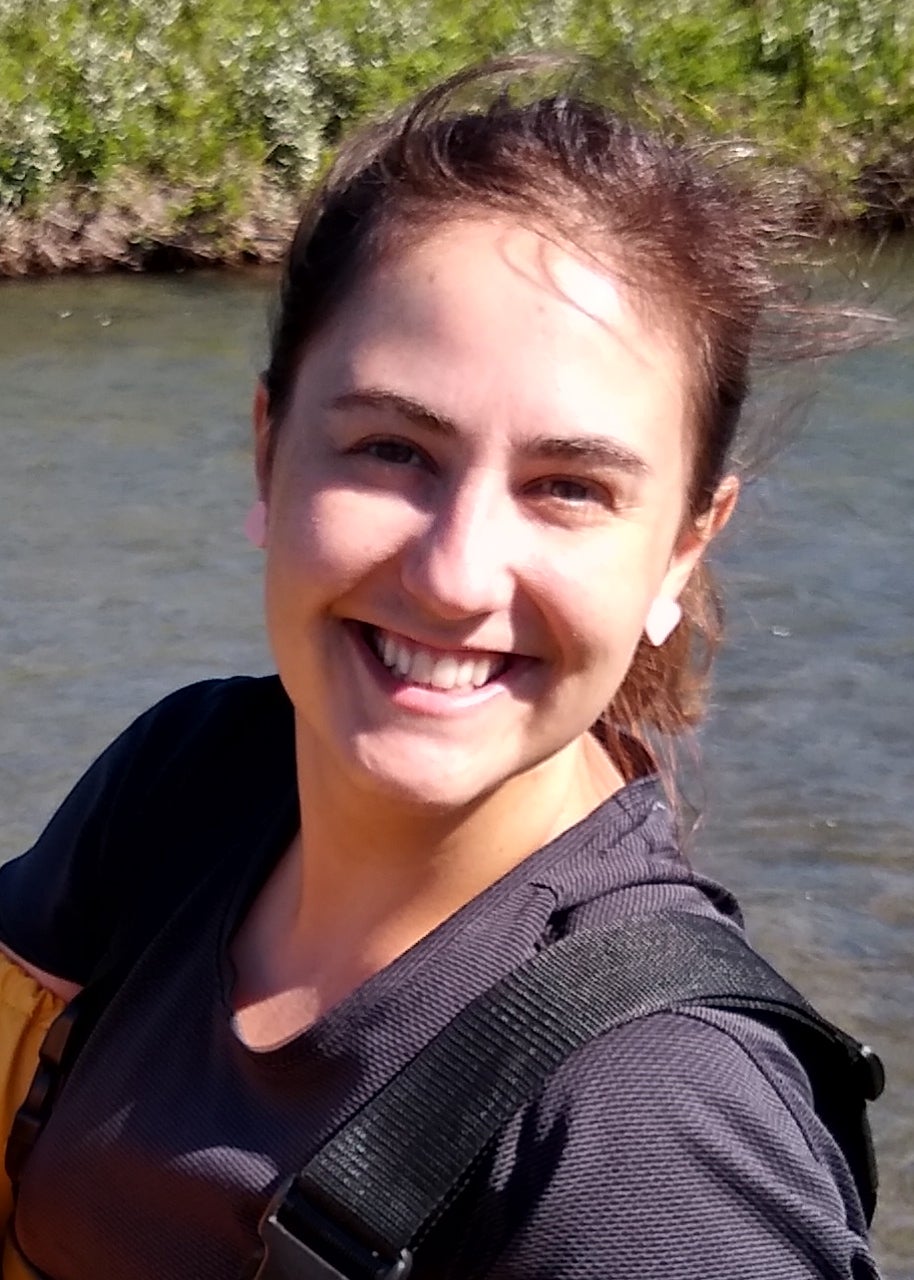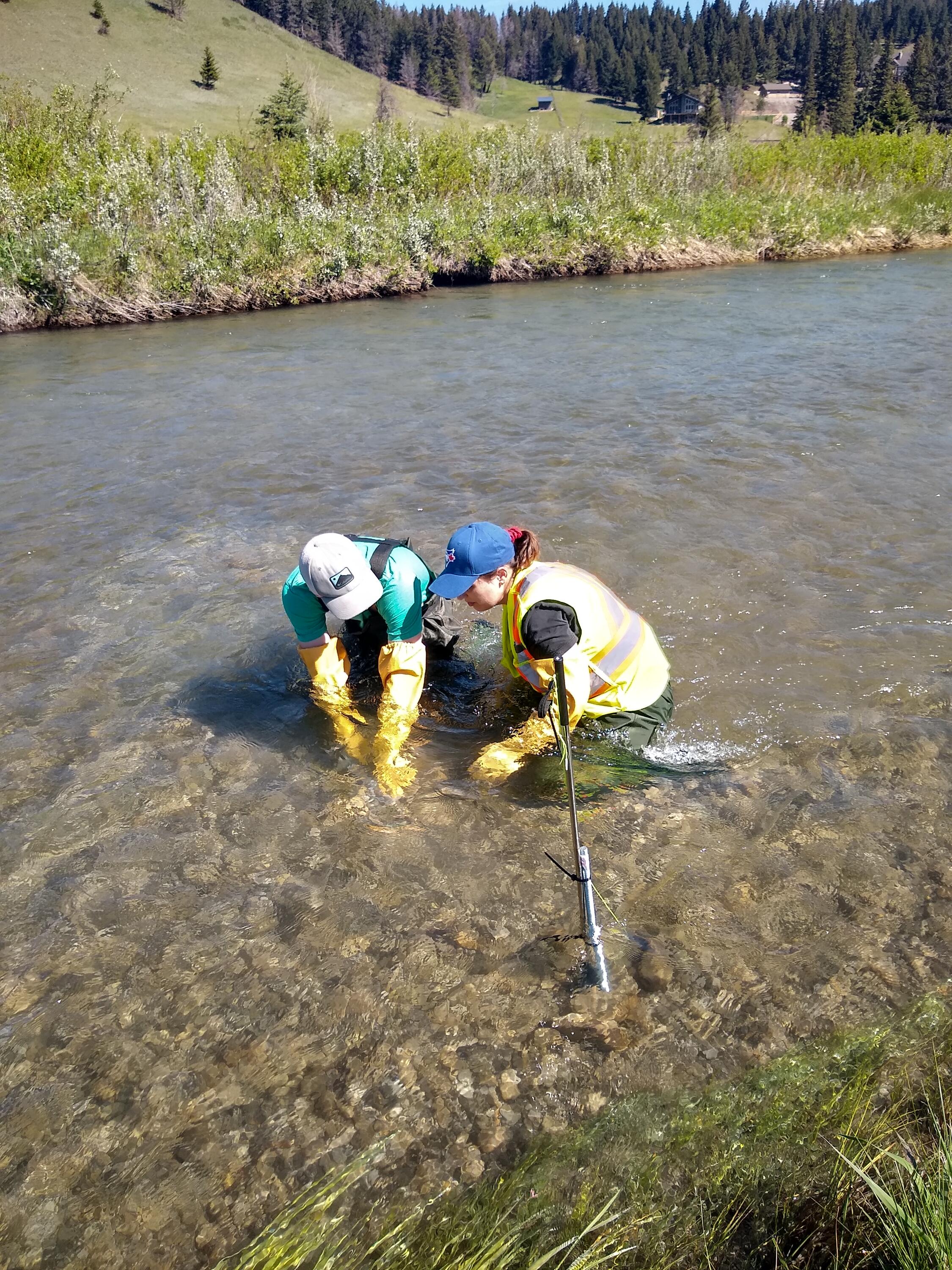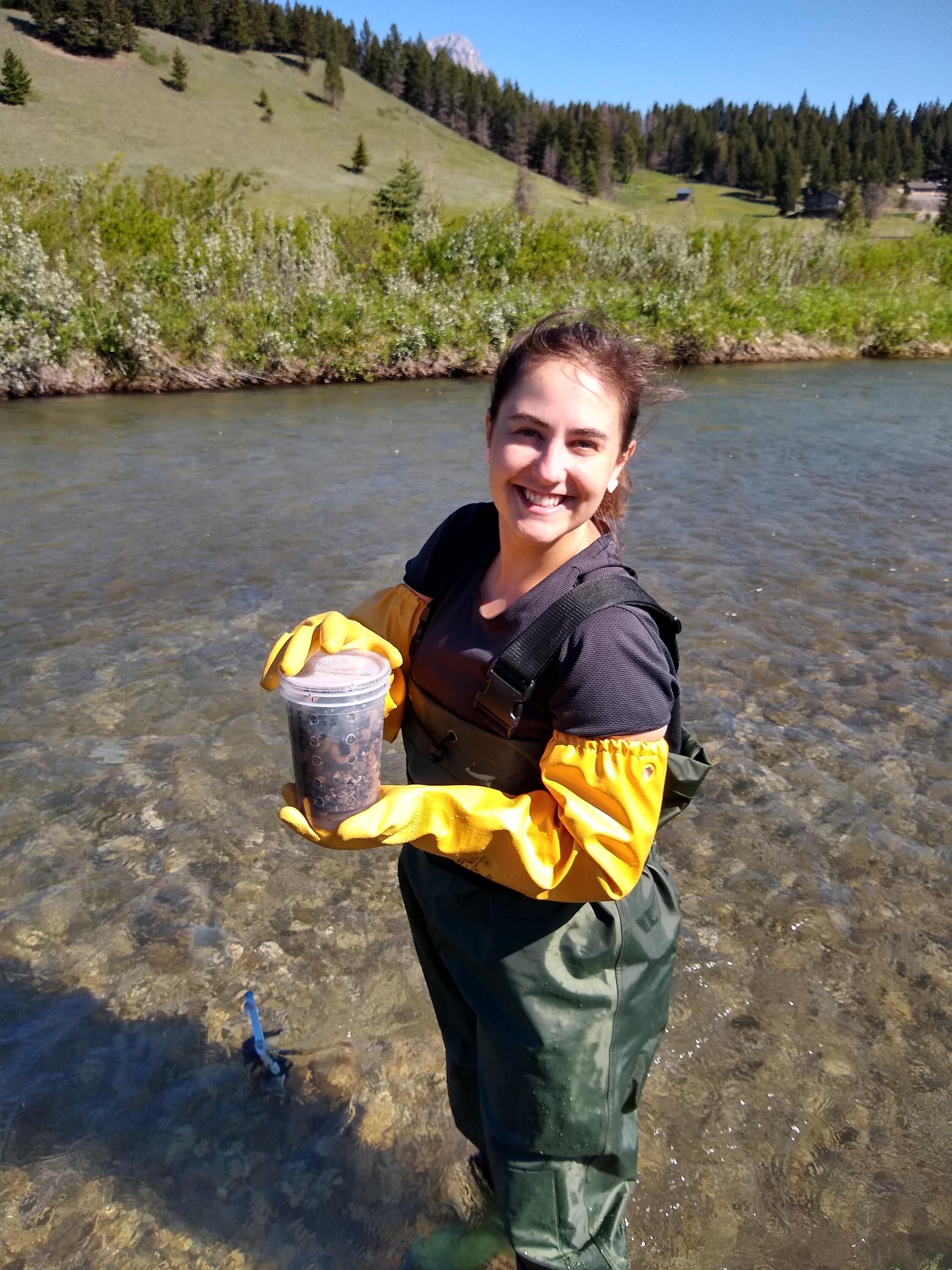
Earlier this year, the Water Institute announced the John Parish Memorial Scholarship established by friends and family in John’s memory. Parish (BES’85) was admired internationally in the field of fluvial geomorphology – studying rivers and river processes, and how they influence the lands around them.
Rafaela de Freitas Maltauro, Ph.D. Candidate in the Department of Geography and Environmental Management, winner of the John Parish Memorial Graduate Scholarship.
He founded PARISH Geomorphic Ltd. in 1997 and merged his company with Matrix Solutions Inc. in 2015. He was instrumental in the development of policies and implementation guidelines for managing watersheds in Southern Ontario and was a champion for natural river restoration across Canada.
“I am very grateful to receive the 2022-2023 Water Institute John Parish Memorial Graduate Scholarship,” said Rafaela.
“John Parish was such an important figure in the field of fluvial geomorphology. I have learned a lot about his passion for rivers and his work developing important projects for river management and protection in Ontario. Such passion is inspiring, and I feel very honoured to have my research recognized in this context.”
Rafaela,
who
has
had
an
appreciation
of
nature
and
water
since
childhood,
completed
an
undergraduate
degree
in
Environmental
Engineering
and
M.Sc.
in
Environment
and
Water
Resources,
at
the
Federal
University
of
Itajubá,
Brazil.


Photo: Deploying ingress baskets to assess fine sediment ingress rates in a gravel-bed river. Crowsnest River (Alberta), 2021.
“I became increasingly interested in learning how soils, erosional processes, water, and sediment interact in a naturally balanced process that has been progressively disrupted by climate change and landscape disturbances.”
This interest led Rafaela to an opportunity to study under Water Institute member Mike Stone, Professor in Waterloo’s Department of Geography and Environmental Management and, fittingly, a former graduate student with Parish. Dr. Stone investigates sediment dynamics in rivers draining forested landscapes impacted by natural and anthropogenic disturbances as part of the NSERC forWater Network for Forested Drinking Water Source Protection Technologies.
Rafaela explained that cohesive sediment, which is defined as particles with a diameter <63 μm, have physicochemical surface forces of attraction and repulsion. These cohesive forces lead particles to have high affinity with contaminants (such as nutrients, heavy metals, and pesticides), which can affect water quality and challenge downstream water treatment.
Excess amounts of fine sediment can be retained and stored in porous river channels, leading to decreased bed permeability and oxygen supply, ultimately impacting the health of aquatic ecosystems. These forces also allow particles to flocculate in the water column, which influences the transport properties of particulate matter in aquatic systems, representing a significant challenge in how to model the transport and fate of these particles.
Rafaela’s current research is focused on understanding the impacts of landscape disturbances on the source, transport, and fate of this cohesive sediment in gravel-bed rivers.
“I hope to improve our understanding of cohesive sediment transport and fate by evaluating (in the field and laboratory settings) how these particles are transferred in suspension and within gravel streambeds.”
“I hope that this mechanistic understanding will be able to refine a fine sediment transport model, which is an important tool for watershed management to make more assertive simulations of cohesive sediment transport and fate in river systems.”